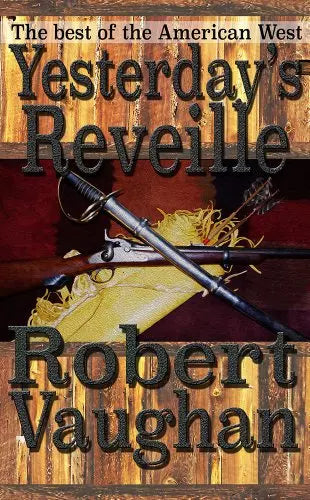
Yesterday's Reveille: An Epic of the Seventh Calvary
From the Author: I am a retired U.S. Army warrant officer. While a member of the Seventh Cavalry (1963-1966) I was given a collateral duty that ignited a passion that has burned in me for over thirty years. I was a historical officer for the Seventh Cavalry and therefore custodian of all regimental memorabilia, including Custer’s hat, gauntlets, and saber, as well as several of his morning reports and officers’ field diaries.
As my interest in the subject grew, I studied history books, memoirs, and archives. I even exchanged letters with a fascinating ninety-six-year-old gentleman who, as a boy, had known Custer and could remember vividly the day Custer left Fort Lincoln on his last scout because his own father had ridden into eternity with him.
I was on active duty in the twentieth-century cavalry, but my soul was answering muster roll call with troopers who had served a century before. For me, the post-Civil War, nineteenth-century army was no longer a silent trumpet gathering dust in some long-abandoned western post. It was a bugle’s call, as immediate as the one I heard playing reveille every morning.
Over the past three decades, it has become politically correct for historians writing of the nineteenth century to beatify the Indian and demonize the soldier. The common soldier is depicted as an illiterate ne’er-do-well, fleeing from the law or a failed life back East. The cavalry officer is held up to be an alcoholic misfit or a pompous martinet seeking glory. While some soldiers and officers might have fallen into such categories, the majority of the army was just as it is today: professionals following a calling. They were neither saints nor sinners, but servants of their government.
Though they never fielded forces of more than 15,000 men, the army surveyed railroad lines, guarded construction crews, defended trails west, provided protection for settlers, miners, ranchers, and farmers, and engaged the Indians in over 250 battles, not counting small skirmishes of platoon size or less. They were nearly always outnumbered, and often the Indians were better armed, due to the greed of white traders. The Indians were better horsemen, fought as a way of life, knew their home territory, and could move as silently as the dust. But in the end, the West was opened and peace was won by the United States Army.
Yesterday’s Reveille is the story of that army. The literal historian will find some factual anomalies in my account. For story continuity, I have made a few changes in dates, locales, and events. I have taken some liberties with the Battle of the Washita, and my depiction of Fort Hays is more generic than authentic. Also, those who have speculated about Custer’s interest in the presidential nominating conventions that year speculated about the Democratic Convention in St. Louis. But because the earlier date of the Republican Convention fit my story, I used it.
